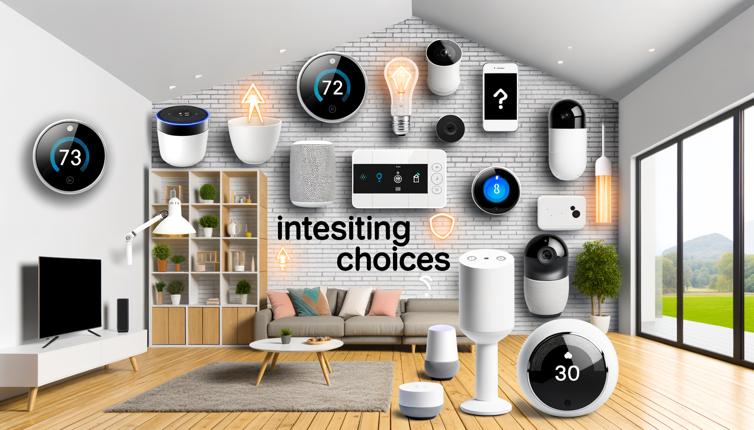1. Understanding Your Needs
Before diving into the world of smart home devices, it's important to assess your specific needs and goals. Consider the areas of your home where you would like to add automation and the problems you want to solve. Do you want to improve security, enhance energy efficiency, or simply make your daily tasks easier? By identifying your priorities, you can narrow down the options and make informed decisions.,Some common areas where homeowners integrate smart devices include:,- Security systems: Smart locks, doorbell cameras, and motion sensors provide enhanced security.,- Lighting: Smart light bulbs and switches allow for remote control and automation.,- Thermostats: Smart thermostats optimize energy usage and provide remote temperature control.,- Entertainment: Smart speakers and streaming devices offer voice control and seamless integration with other devices.,- Appliances: Smart appliances can be controlled remotely and provide energy monitoring features.,- Home assistants: Virtual assistants like Amazon Echo or Google Home can control multiple devices and provide voice-activated commands.
2. Compatibility and Integration
When choosing smart home devices, it's crucial to consider compatibility and integration capabilities. Check if the devices you are interested in are compatible with the existing systems in your home, such as your smartphone, Wi-Fi network, or other smart devices you already have. Look for devices that support popular smart home platforms like Amazon Alexa, Google Assistant, or Apple HomeKit to ensure seamless integration and control.,It's also important to consider if the devices can communicate with each other. Some devices work in isolation, while others can be synchronized to create automated routines and scenarios. This allows you to set up actions like turning off the lights when you leave the house or adjusting the thermostat when you go to bed.,Research compatibility and integration options before making a purchase to ensure all your devices can work together harmoniously.
3. Security and Privacy
With the increasing number of smart devices connected to the internet, security and privacy should be a top priority. Look for devices that offer robust security features, such as encryption and two-factor authentication, to protect your data and prevent unauthorized access.,It's also important to research the device manufacturer's privacy policy. Find out what data the device collects, how it's used, and if it's shared with third parties. Choose devices from reputable manufacturers that prioritize user privacy and provide transparency in their data practices.,Consider implementing additional security measures like strong passwords, regular firmware updates, and secure Wi-Fi networks to further protect your smart home ecosystem.
Conclusion
Choosing the best smart home devices for your home requires careful consideration of your needs, compatibility, security, and privacy. By understanding your priorities and conducting thorough research, you can create a smart home ecosystem that enhances convenience, efficiency, and peace of mind. Remember to always follow the manufacturer's instructions for installation, setup, and maintenance to ensure optimal performance and longevity of your devices.









